Kia Stonic vs MG ZS - Differences and prices compared
Compare performance (115 HP vs 197 HP), boot space and price (20100 £ vs 18000 £ ) at a glance. Find out which car is the better choice for you – Kia Stonic or MG ZS?
Costs and Efficiency:
Price and efficiency are key factors when choosing a car – and this is often where the real differences emerge.
MG ZS has a to a small extent advantage in terms of price – it starts at 18000 £ , while the Kia Stonic costs 20100 £ . That’s a price difference of around 2143 £.
Fuel consumption also shows a difference: MG ZS manages with 5 L and is therefore to a small extent more efficient than the Kia Stonic with 5.60 L. The difference is about 0.60 L per 100 km.
Engine and Performance:
Under the bonnet, it becomes clear which model is tuned for sportiness and which one takes the lead when you hit the accelerator.
When it comes to engine power, the MG ZS has a convincingly edge – offering 197 HP compared to 115 HP. That’s roughly 82 HP more horsepower.
In acceleration from 0 to 100 km/h, the MG ZS is distinct quicker – completing the sprint in 8.70 s, while the Kia Stonic takes 10.70 s. That’s about 2 s faster.
In terms of top speed, the Kia Stonic performs hardly perceptible better – reaching 182 km/h, while the MG ZS tops out at 179 km/h. The difference is around 3 km/h.
There’s also a difference in torque: Kia Stonic pulls evident stronger with 200 Nm compared to 148 Nm. That’s about 52 Nm difference.
Space and Everyday Use:
Whether family car or daily driver – which one offers more room, flexibility and comfort?
Both vehicles offer seating for 5 people.
In curb weight, Kia Stonic is slightly lighter – 1205 kg compared to 1330 kg. The difference is around 125 kg.
In terms of boot space, the MG ZS offers evident more room – 443 L compared to 352 L. That’s a difference of about 91 L.
In maximum load capacity, the MG ZS performs noticeable better – up to 1457 L, which is about 302 L more than the Kia Stonic.
When it comes to payload, MG ZS hardly perceptible takes the win – 470 kg compared to 445 kg. That’s a difference of about 25 kg.
Who wins the race in the data check?
The MG ZS sits well ahead of its rival in the objective data comparison.
This result only shows which model scores more points on paper – not which of the two cars feels right for you.
Costs and Consumption
View detailed analysis
Engine and Performance
View detailed analysis
Dimensions and Body
View detailed analysis
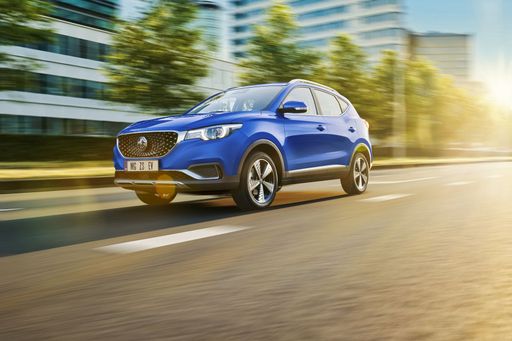
MG ZS
Kia Stonic
The Kia Stonic is a sprightly compact crossover that mixes city-friendly agility with a cheeky, modern design — perfect for buyers who want style without sacrificing sense. Inside it serves up clever practicality and a bright, well-equipped cabin, making everyday driving feel a bit more fun than it has any right to be.
details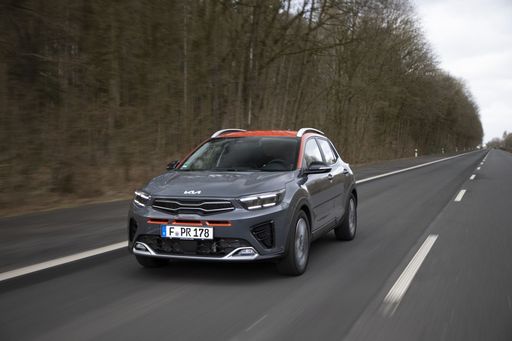
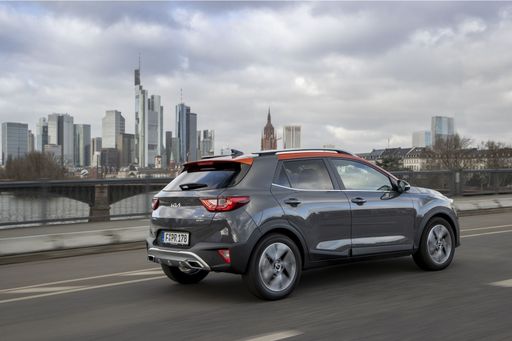
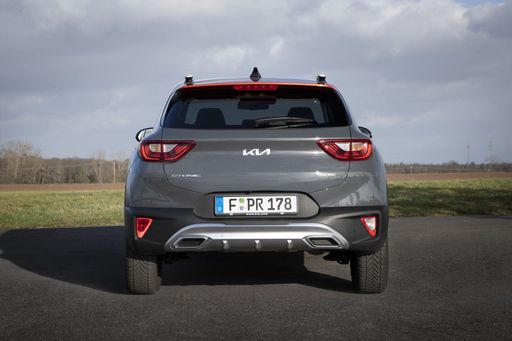
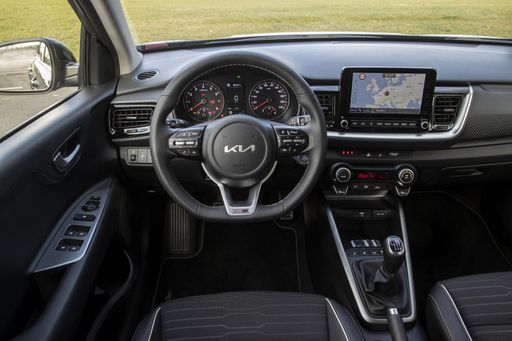
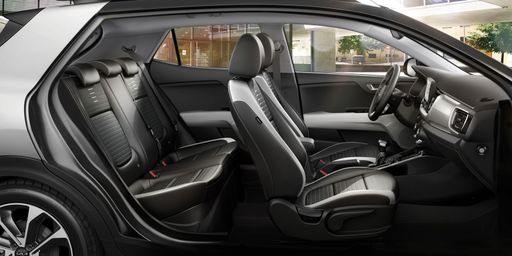
MG ZS
The MG ZS arrives as a cheeky and practical choice for shoppers who want SUV style and family-friendly space without blowing the budget. It may not pretend to be premium, but with sensible equipment, easy-to-live-with driving manners and surprising value, it makes a persuasive case for anyone after sensible transport with a bit of personality.
details
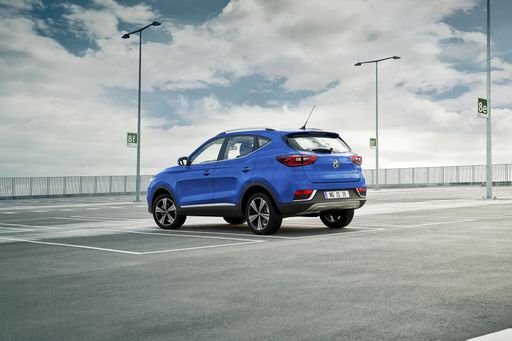



Costs and Consumption |
|
|---|---|
|
Price
20100 - 26600 £
|
Price
18000 - 24000 £
|
|
Consumption L/100km
5.6 - 5.9 L
|
Consumption L/100km
5 - 6.5 L
|
|
Consumption kWh/100km
-
|
Consumption kWh/100km
-
|
|
Electric Range
-
|
Electric Range
-
|
|
Battery Capacity
-
|
Battery Capacity
-
|
|
co2
127 - 133 g/km
|
co2
113 - 145 g/km
|
|
Fuel tank capacity
45 L
|
Fuel tank capacity
41 - 55 L
|
Dimensions and Body |
|
|---|---|
|
Body Type
SUV
|
Body Type
SUV
|
|
Seats
5
|
Seats
5
|
|
Doors
5
|
Doors
5
|
|
Curb weight
1205 - 1270 kg
|
Curb weight
1330 - 1420 kg
|
|
Trunk capacity
352 L
|
Trunk capacity
443 L
|
|
Length
4165 mm
|
Length
4430 mm
|
|
Width
1760 mm
|
Width
1818 mm
|
|
Height
1520 mm
|
Height
1635 mm
|
|
Max trunk capacity
1155 L
|
Max trunk capacity
1457 L
|
|
Payload
440 - 445 kg
|
Payload
375 - 470 kg
|
Engine and Performance |
|
|---|---|
|
Engine Type
Petrol, Petrol MHEV
|
Engine Type
Full Hybrid, Petrol
|
|
Transmission
Manuel, Automatic
|
Transmission
Automatic, Manuel
|
|
Transmission Detail
Manual Gearbox, Dual-Clutch Automatic
|
Transmission Detail
Automatic Gearbox, Manual Gearbox
|
|
Drive Type
Front-Wheel Drive
|
Drive Type
Front-Wheel Drive
|
|
Power HP
100 - 115 HP
|
Power HP
116 - 197 HP
|
|
Acceleration 0-100km/h
10.7 - 12.1 s
|
Acceleration 0-100km/h
8.7 - 12.5 s
|
|
Max Speed
179 - 182 km/h
|
Max Speed
168 - 179 km/h
|
|
Torque
172 - 200 Nm
|
Torque
148 Nm
|
|
Number of Cylinders
3
|
Number of Cylinders
4
|
|
Power kW
74 - 85 kW
|
Power kW
85 - 145 kW
|
|
Engine capacity
998 cm3
|
Engine capacity
1495 - 1498 cm3
|
General |
|
|---|---|
|
Model Year
2025
|
Model Year
2024 - 2025
|
|
CO2 Efficiency Class
D
|
CO2 Efficiency Class
C, E
|
|
Brand
Kia
|
Brand
MG
|
Is the Kia Stonic offered with different drivetrains?
The Kia Stonic is offered with Front-Wheel Drive.




